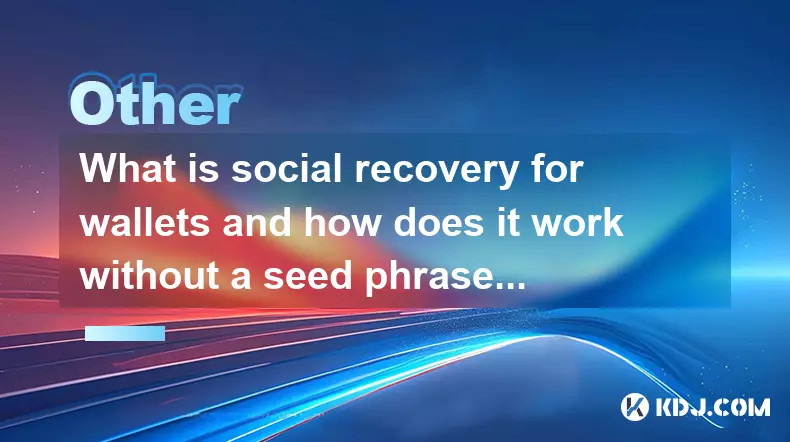-
 bitcoin
bitcoin $102877.190955 USD
1.88% -
 ethereum
ethereum $3430.435064 USD
4.52% -
 tether
tether $0.999264 USD
-0.05% -
 xrp
xrp $2.307310 USD
4.49% -
 bnb
bnb $987.740692 USD
3.82% -
 solana
solana $161.947760 USD
3.97% -
 usd-coin
usd-coin $0.999712 USD
-0.05% -
 tron
tron $0.292810 USD
2.93% -
 dogecoin
dogecoin $0.179738 USD
10.70% -
 cardano
cardano $0.580716 USD
8.75% -
 hyperliquid
hyperliquid $42.463448 USD
8.40% -
 chainlink
chainlink $15.763437 USD
7.05% -
 zcash
zcash $649.595636 USD
17.21% -
 bitcoin-cash
bitcoin-cash $511.610261 USD
7.19% -
 stellar
stellar $0.292537 USD
7.91%
What is a smart contract? How does a smart contract work?
Self-executing contracts coded on a blockchain, smart contracts automate agreements based on predefined conditions, offering transparency and immutability, but require careful auditing to mitigate security risks.
Mar 12, 2025 at 11:25 am

- Smart contracts are self-executing contracts with the terms of the agreement between buyer and seller being directly written into lines of code.
- They operate on a blockchain, ensuring transparency, security, and immutability.
- Smart contract functionality relies on predefined conditions and triggers.
- Deployment and interaction involve using blockchain platforms and compatible wallets.
- Security vulnerabilities are a major concern, requiring careful auditing and development.
A smart contract is a self-executing contract with the terms of the agreement between buyer and seller being directly written into lines of code. Instead of relying on intermediaries like lawyers or notaries, these contracts automatically execute when predetermined conditions are met. This automation eliminates the need for trust between parties, as the code itself enforces the agreement. The immutability of blockchain technology ensures that once a smart contract is deployed, its terms cannot be altered without the consent of all parties involved. This creates a transparent and secure environment for various transactions.
How Does a Smart Contract Work?Smart contracts function by utilizing a combination of code and blockchain technology. The core logic of the contract, specifying the conditions for execution and the actions to be taken, is written in a programming language like Solidity (commonly used on Ethereum). This code is then deployed onto a blockchain, making it publicly viewable and verifiable. Once deployed, the contract's execution is triggered by specific events or conditions defined within its code. These events could be anything from a payment being received to a specific date being reached.
- Trigger Event: A predefined event occurs, such as a payment being made or a certain time elapsing.
- Code Execution: The smart contract's code executes automatically upon meeting the trigger conditions.
- State Change: The blockchain's state is updated to reflect the changes resulting from the code execution. This update is permanent and immutable.
- Outcome: The desired outcome of the agreement is achieved, often involving the transfer of assets or information. This happens automatically and transparently.
Developing a smart contract requires a specific skill set and understanding of blockchain technology. The process generally involves:
- Defining the Contract: Carefully outlining all terms and conditions of the agreement. This requires meticulous planning to avoid ambiguities or loopholes.
- Choosing a Platform: Selecting a suitable blockchain platform like Ethereum, Binance Smart Chain, or others, depending on the requirements of the contract.
- Writing the Code: Using a programming language like Solidity to write the code that implements the contract's logic. This requires expertise in programming and blockchain development.
- Testing and Auditing: Thoroughly testing the code to identify and fix any bugs or vulnerabilities before deployment. Independent audits by security experts are highly recommended.
- Deployment: Deploying the compiled code onto the chosen blockchain network. This typically involves using a development environment and a compatible wallet.
Once a smart contract is deployed, users can interact with it using compatible wallets or interfaces. This interaction typically involves:
- Connecting a Wallet: Connecting a cryptocurrency wallet that supports the blockchain network where the contract resides.
- Initiating a Transaction: Sending a transaction to the contract, triggering its execution if the conditions are met.
- Monitoring the Outcome: Tracking the status of the transaction and verifying the outcome on the blockchain explorer. This ensures that the contract executed as expected.
Smart contracts, while offering increased security and transparency, are still susceptible to vulnerabilities. Security concerns are paramount and require careful attention:
- Reentrancy Attacks: These exploit vulnerabilities in the code to allow malicious actors to repeatedly call functions, draining funds.
- Denial of Service (DoS) Attacks: These aim to disrupt the contract's functionality by overwhelming it with requests.
- Logic Errors: Errors in the contract's code can lead to unintended consequences or allow for exploitation.
- Gas Limits: Insufficient gas allocation can prevent the contract from completing its execution.
- Auditing: Thorough code audits by independent security experts are crucial to identify and mitigate potential vulnerabilities.
A: The legal enforceability of smart contracts varies depending on jurisdiction. While the code itself is self-executing, the underlying legal framework may still be needed to resolve disputes or enforce the contract's terms.
Q: What are the benefits of using smart contracts?A: Benefits include increased transparency, automation, security, reduced costs associated with intermediaries, and enhanced efficiency.
Q: What are the limitations of smart contracts?A: Limitations include the complexity of development, potential security vulnerabilities, the need for specific technical expertise, and the dependence on the underlying blockchain technology.
Q: Can smart contracts be used for anything?A: Smart contracts can be used for a wide range of applications, including decentralized finance (DeFi), supply chain management, voting systems, digital identity management, and many more. However, the complexity of the application should be considered.
Q: How can I learn more about developing smart contracts?A: Numerous online resources are available, including documentation for different blockchain platforms, online courses, and communities dedicated to smart contract development. Understanding programming and blockchain technology is crucial.
Disclaimer:info@kdj.com
The information provided is not trading advice. kdj.com does not assume any responsibility for any investments made based on the information provided in this article. Cryptocurrencies are highly volatile and it is highly recommended that you invest with caution after thorough research!
If you believe that the content used on this website infringes your copyright, please contact us immediately (info@kdj.com) and we will delete it promptly.
- Ripple (XRP) in 2026: Hold or Fold? A Look at XRP's Future and Emerging DeFi Alternatives
- 2025-11-08 18:35:01
- Zcash ZEC Coin Price Explosion: From Privacy Niche to Center Stage
- 2025-11-08 18:55:01
- Berachain Price Prediction: Navigating the Honeycomb Hype in Crypto
- 2025-11-08 18:55:01
- Arthur Hayes, Gold, and Bitcoin: A Modern Monetary Trinity?
- 2025-11-08 19:15:01
- Shiba Inu's Next Move: Navigating a Shifting Market
- 2025-11-08 19:20:01
- Pakistan's Crypto Crossroads: Balancing Opportunity with Asset-Backed Realities
- 2025-11-08 19:20:01
Related knowledge

What is a cryptographic nonce and how is it used to prevent replay attacks?
Nov 08,2025 at 05:00pm
Understanding Cryptographic Nonces in Blockchain Systems1. A cryptographic nonce is a number used only once within a specific cryptographic communicat...

What is social recovery for wallets and how does it work without a seed phrase?
Nov 08,2025 at 08:39am
Social Recovery in Cryptocurrency Wallets1. Social recovery is a mechanism designed to help users regain access to their cryptocurrency wallets withou...

What is a confidential transaction and how does it hide transaction amounts?
Nov 08,2025 at 07:19pm
Understanding Confidential Transactions in Cryptocurrency1. Confidential transactions are a cryptographic method used in certain blockchain networks t...

What is a data availability layer and how does it help rollups become more secure and cheaper?
Nov 08,2025 at 08:39pm
What Is a Data Availability Layer?1. A data availability layer is a foundational component in blockchain infrastructure designed to ensure that transa...

What is a double-spend attack and how does Proof of Work fundamentally prevent it?
Nov 08,2025 at 08:19pm
Understanding the Double-Spend Problem in Cryptocurrencies1. In digital cash systems, a fundamental challenge arises when a user attempts to spend the...

What is a deflationary token and how is its supply reduced over time?
Nov 08,2025 at 04:19pm
Understanding Deflationary Tokens in the Cryptocurrency EcosystemA deflationary token is a type of cryptocurrency designed to decrease in supply over ...

What is a cryptographic nonce and how is it used to prevent replay attacks?
Nov 08,2025 at 05:00pm
Understanding Cryptographic Nonces in Blockchain Systems1. A cryptographic nonce is a number used only once within a specific cryptographic communicat...

What is social recovery for wallets and how does it work without a seed phrase?
Nov 08,2025 at 08:39am
Social Recovery in Cryptocurrency Wallets1. Social recovery is a mechanism designed to help users regain access to their cryptocurrency wallets withou...

What is a confidential transaction and how does it hide transaction amounts?
Nov 08,2025 at 07:19pm
Understanding Confidential Transactions in Cryptocurrency1. Confidential transactions are a cryptographic method used in certain blockchain networks t...

What is a data availability layer and how does it help rollups become more secure and cheaper?
Nov 08,2025 at 08:39pm
What Is a Data Availability Layer?1. A data availability layer is a foundational component in blockchain infrastructure designed to ensure that transa...

What is a double-spend attack and how does Proof of Work fundamentally prevent it?
Nov 08,2025 at 08:19pm
Understanding the Double-Spend Problem in Cryptocurrencies1. In digital cash systems, a fundamental challenge arises when a user attempts to spend the...

What is a deflationary token and how is its supply reduced over time?
Nov 08,2025 at 04:19pm
Understanding Deflationary Tokens in the Cryptocurrency EcosystemA deflationary token is a type of cryptocurrency designed to decrease in supply over ...
See all articles





















![The Graph Price Prediction [GRT Crypto Price News Today] The Graph Price Prediction [GRT Crypto Price News Today]](/uploads/2025/11/07/cryptocurrencies-news/videos/690d4df44fe69_image_500_375.webp)



















































